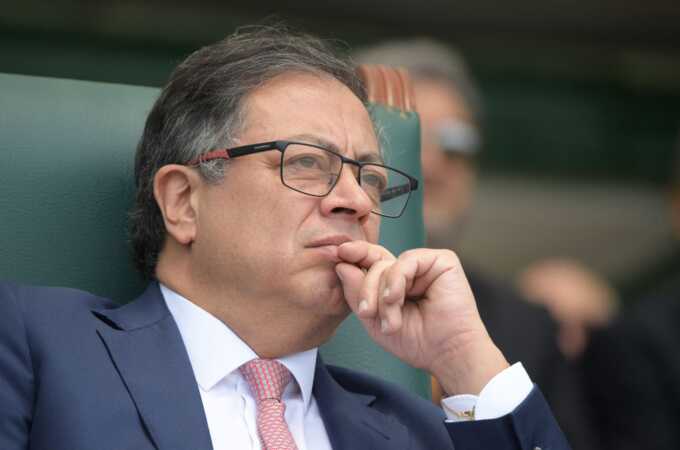

Special forces deployed to province engulfed in a war between armed groups over control of cocaine province. Dozens of civilians have been killed and thousands forced to flee.
Colombian special forces have entered on Tuesday evening a north-eastern province where clashes between armed groups over the control of this cocaine cultivation and trafficking hub has since Friday left dozens dead and displaced over 5,000.
President Gustavo Petro declared a state of emergency on Monday, describing the killings as “war crimes.”
The exact number of civilian victims is still unclear and refugees are still fleeing the region in convoys after battles between the National Liberation Army (ELN) and former FARC fighters erupted on Friday.
“These atrocities cannot go unanswered,” Petro said. “The ELN has chosen the path of war, and war will come.” The president also announced the suspension of peace talks with the ELN, which had been ongoing since 2022 and vowed decisive government action to restore order in the region.
The ELN’s incursion into Catatumbo that is controlled by Frente 33—a faction of former Revolutionary Armed Forces of Colombia (FARC) fighters—triggered a battle that left civilians caught in the crossfire. Local officials warn that the death toll and displacement numbers could rise as reports from remote areas emerge.
The violence underscores the precarious security situation in Catatumbo, where armed groups exploit weak state presence to dominate drug trafficking, smuggling, and illegal mining. These activities provide critical funding for the paramilitary groups, which often embed themselves in local communities to suppress dissent and secure loyalty.
In response to the crisis, the Colombian government has deployed 400 soldiers to the region, established humanitarian corridors, and facilitated evacuations for those fleeing the violence. Aid organizations are working to support displaced families, but the influx of refugees has strained neighboring municipalities and pushed some across the border into Venezuela.
The suspension of peace talks marks a major setback for Petro’s administration, which had sought to build on the 2016 peace accord that led to the disbandment of most FARC factions. The negotiations with the ELN had brought temporary ceasefires, but the recent escalation has derailed any hopes of a lasting agreement.
Petro’s declaration of a state of emergency signals a shift toward a more aggressive stance against the ELN, raising concerns about the potential for further escalation. “We will do whatever it takes to ensure the safety of our citizens and reestablish order in Catatumbo,” Petro said, though he also faced criticism for not addressing the root causes of violence in the region.
As Colombia grapples with the aftermath of the clashes, the international community has expressed concern about the humanitarian crisis and the broader implications for peace in the country. The coming weeks will test the government’s ability to navigate the dual challenge of countering organized crime and mitigating the suffering of those caught in the conflict.